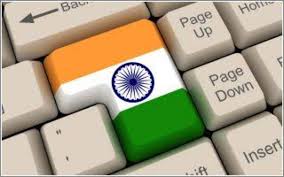When Bitgamer’s CEO, Andrew Littlewood began gaming in 2001, he found that esports was only geared towards the top 1% of gamers, catering only to professionals.
“The world of esports opened this whole world for me, where gamers could play with each other. Back then, it was just a handful of esports enthusiasts, now we see hundreds of millions of them everywhere,” he says.
Now Bitgamer.io plans to be the first social platform for gamers that puts all gaming information into one website. They aim to make it easy for new gamers to get involved and find opponents online easily. They also host online tournaments, so that more gamers can be involved at lower entry costs.
Southeast Asia’s e-sports craze hits home with biggest gaming cafe in Chennai
Bitgamer’s Evolution
Littlewood, whose gaming name is Futureman, wanted to bring esports not just to pros but the billions of esports amateurs as well. So in 2007, he started a company called Myegamer, short for ‘my electronic gamer’. It was a platform where gamers, professional and casual, could get professional esports experience. In 2010, they tried launching their own cryptocurrency, which gamers could use to play against each other, but it eventually ran into problems, and the platform had to be shut down.
Fast-forward to today. With the advent of blockchain technology, Littlewood’s team relaunched with Bitgamer. “It’s basically the same idea, the same model, but we have blockchain technology backing us,” he explains.
Not just the Top 1%
Bitgamer is a decentralised platform for gamers, where anyone can create an esports environment with any game. Littlewood says that’s why they are rooting for esports to open up the market for all gamers and not just the top 1%. They are also targeting markets like Latin America, India, and Africa, where the amateur markets exist. “There is a whole range of amateurs to semiprofessionals who are not getting the spotlight or the prize money,” he says.
Bit Token

Bit Token
Similar to Bitcoin’s proof-of-work principle, Bitgamer’s Bit Token uses ‘proof-of-game’. Accordingly, when gamers play a game and win, they are rewarded with Bit Tokens. Thus, the more activity they contribute to the Bitgamer ecosystem, the more they are rewarded. Having tried the virtual currency idea before, Littlewood believes Bitgamer has an edge over other platforms.
In addition to this, Bitgamer also has an online shop, where gamers can get merchandise, computer equipment and accessories, and apparel, in exchange for Bit Tokens, or any other cryptocurrency.
Social Networking
An avid gamer for 18 years now, Littlewood says that gamers are social creatures. They not only play online with hundreds of different people, but also create friends. Bitgamer’s edge over its competitors entails its social networking aspect. Users can use their gaming name, visit other gamer profiles, and see all their accomplishments, an aspect that no other platform has come up with. “Normal people use Facebook to keep up with friends. I’m a gamer and all my friends are gamers. Our whole lifestyle has been revolving around gaming. So a Facebook doesn’t really cater to my needs as a gamer,” he explains.
As a user signs into Bitgamer, they get a games feed and can choose the games of their interest. Gamers can also post a video of their game so that everyone in the community can comment on it, like it, and follow the gamer.
Competitors or Allies
Another advantage Bitgamer has over other companies is that 99% of their competitors are outside the US. Thus, ICOs launched by them do not comply with US SEC guidelines and hence, cannot operate on US soil. Considering that 54% of the esports market in the world are in the US, they miss out on a big piece of the pie.
Bitgamer has around 6,000 followers on Twitter and around 50,000 likes on their Facebook page. They are also using Discord to build their basic community, and organise their first cryptocurrency tournament in the US.
Littlewood, however, looks at his competitors, like Firstblood or Dreamgame, as allies. “We are all into esports, trying to make it grow. Every platform has something to offer, each has only a piece of the puzzle. Together, we make up the full picture of esports,” he says.
How Startup Technology is Changing the Game Across These Sports
Future of Esports
As the popularity of esports rises and smart devices take over from toys, the average age of gamers is decreasing. We see children playing games in grocery stores and malls all the time. Littlewood says he is excited for the future of esports. If 2018 earns a billion-dollar revenue from esports, according to the CEO, it could rise to a 100 billion dollars in the next 5-10 years.
“Cryptocurrency creates these win-win situations and these incentives. To build upon that, we also give a tournament and a cut of the pool prize money. So it’s a win-win for gamers, tournament organisers, and us. In a fiat-based currency it just wouldn’t work that way,” he says.












